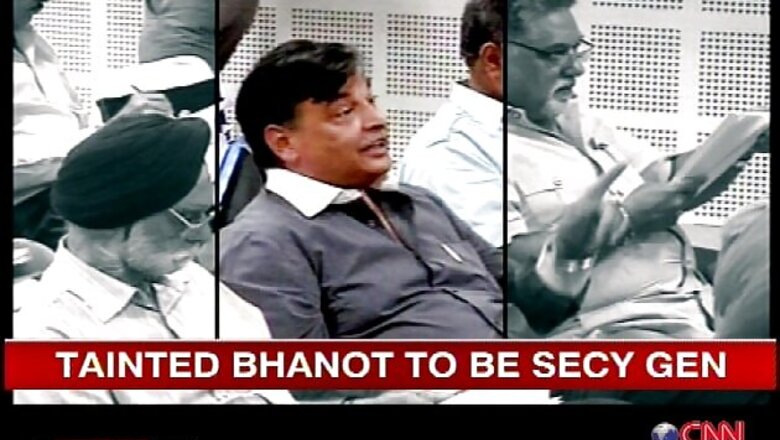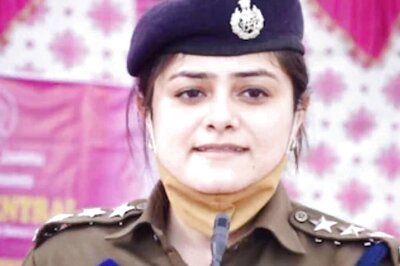
views
New Delhi: A look back at the bitter turf war between the IOA and IOC which has taken one dramatic turn after another, with the latest being the threat of a ban on India.
May 2010: The IOA rejects Sports and Youth Affairs Minister MS Gill's age and tenure guidelines.
April 2011: The Central Bureau of Investigation arrests Suresh Kalmadi, the head of the IOA and sacked chief of the Commonwealth Games Organising Committee, in connection with irregularities in the contract for the Queen's Baton Relay and other CGW scams.
May 2011: Kalmadi continues as IOA president despite being jailed along with key aides Lalit Bhanot and VK Verma in connection with alleged irregularities related to the CWG. The IOA takes no action against Kalmadi and Bhanot.
Later that month, Sports Minister Ajay Maken drafts the government-backed National Sports Development Bill, but the IOA rejects it by saying it will impinge on the autonomy of the sports federations. Officiating IOA president Vijay Kumar Malhotra says there are at least six clauses in the bill that clearly point to a government takeover of national sports federations "in the garb of good governance". He also accuses the sports ministry of using strong-arm methods to force 21 federations to fall in line with the government on the guidelines. The IOC backs the IOA's rejection of the Sports Bill.
January 2012: After nine months, Kalmadi and his aides are released from jail after the former accepts his bail plea for want of a money trail leading to him. Justice Mukta Gupta allows the bail applications on a personal bond of Rs 5 lakh with two sureties of the like amount subject to the trial court's satisfaction. That same month, Kalmadi asks Malhotra to continue as acting president of the IOA, which also rejects the findings of its own ethics commission.
September 2012: Faced with the threat from the IOC to take action if its directives are not followed, the IOA announces elections on November 25 while saying it wants "perfect relations" with the parent body. The IOA also calls a General Body Meeting on October 18 to announce the poll process.
October 2012: The IOA constitutes a three-man election commission headed by former chief election commissioner SY Qureshi and also consisting of former Kerala chief justice VK Bali and retired Delhi High court justice JD Kapur. For the first time in the IOA's history, a former CEC of India along with retired high court judges are named to conduct the elections. This assumes greater significance as the IOA is at loggerheads with the sports ministry over the age and tenure issues. The election commission says the November 25 elections will be held as per the sports code.
November 2012: With less than ten days to go to the elections, Bhanot files his nomination for Secretary General of the IOA. The IOC objects and asks the IOA to hold elections under the IOA constitution. Almost immediately, Qureshi resigns from his post as chairman of the election commission citing that the IOA backtracked from following the government-laid sports guidelines.
A day after the Abhay Singh Chautala-faction writes to the IOC chief accusing IOC member Randhir Singh of flouting the Olympic Charter, the IOA announces that the elections have been postponed to December 5. The IOC swiftly reacts by instructing the IOA not to hold elections as per the sports code, or else it will face a ban. Randhir then withdraws with his entire panel.
The IOA cites a Delhi High Court ruling and says the elections will proceed, but the IOC dismisses the body and starts the process to ban India.



















Comments
0 comment